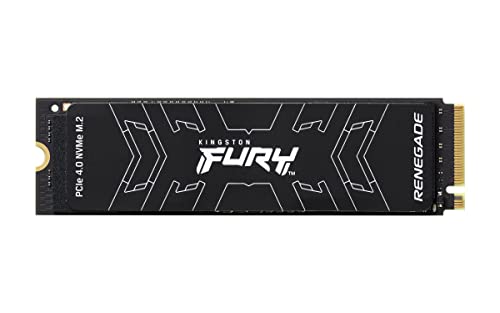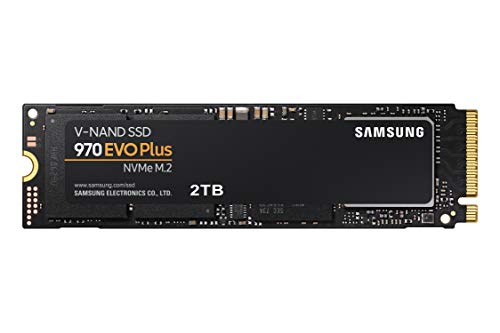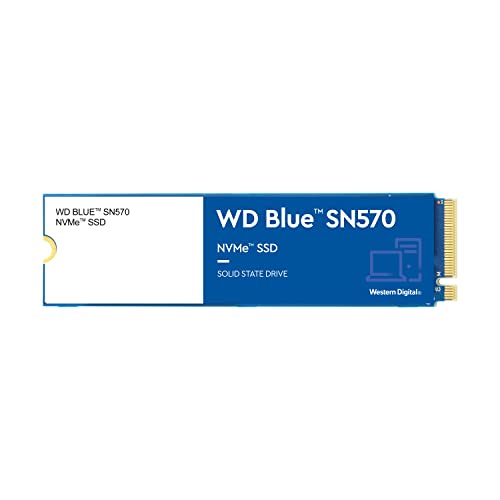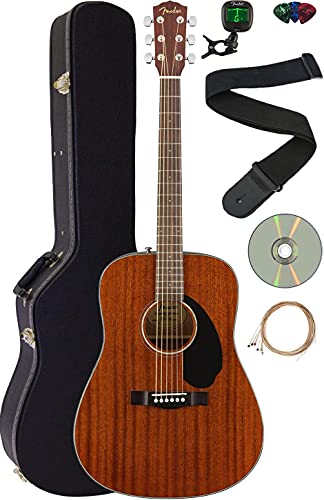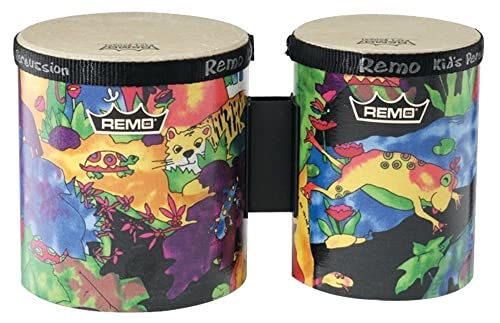Best NVMe SSDs of 2024
Steven Gentry Apr 18, 2024 10:31 PM
NVMe drives are increasingly widespread. They are also becoming faster and faster as PCIe Gen 4 becomes more widespread.
We're here to lend a helping hand if you're having trouble deciding which drive to buy by outlining the top drives that are readily available (whether you prioritize storage, speed, or reliability). Some even include RGB lighting, which improves performance, as any good PC player knows.
Our 10 top-rated best NVMe SSDs in 2024 are ready to keep your PC cool and stylish. Please see below for details.

Overview
If you use the best NVMe SSD for gaming, loading screens will be completed so quickly that you'll wonder why you didn't get rid of your old hard drive sooner. A dependable NVMe SSD makes using your PC daily much more straightforward, from fast booting into Windows to quickly launching large open-world games like Saints Row. The most excellent and economical PC upgrade you can make is an NVMe SSD, second only to a GPU.
Just consider how having some of the best NVMe SSDs inside the Xbox Series X, and PlayStation 5 has helped them. Soon, our systems will be equipped with the DirectStorage technology that makes the most of the Xbox's capacity. This indicates that storage will become even more crucial for gaming PCs.
The SSD market's fierce competition is its best feature. These quick drives are frequently discounted and offered at excellent prices, especially 1TB NVMe SSDs, which sell for around $120. Buying an NVMe SSD should be simple as long as your motherboard supports an M.2 slot.
To find the best options, we recently examined a ton of NVMe SSDs. Every drive we've reviewed comes in various capacities, with pricing to match. Additionally, larger drives perform better since more controller channels are utilized at greater capacities, so if you can find one on sale, get a big drive. It will pay off.

Check out our list of the Best NVMe SSDs suggested by Experts.
-
Best PCI Express 4.0 NVMe SSD for Most Users: Crucial P5 Plus
-
Best PCI Express 3.0 NVMe SSD for Most Users: Samsung SSD 980
-
Best PCI Express 4.0 NVMe SSD for Gamers: SK Hynix Platinum P41
-
Best High-Performance PCI Express 4.0 NVMe SSD: Samsung SSD 980 Pro
-
Best Budget NVMe SSD: WD Blue SN570
-
Best PCI Express 4.0 NVMe SSD for PC Modders: ADATA XPG Spectrix S40G
-
Best Performance NVMe SSD: GIGABYTE AORUS Gen4
1. WD Black SN850
Currently, the fastest PCIe 4.0 NVMe SSD you can purchase is the WD Black SN850 1TB drive. There is nothing that can compare to it when it comes to real-world benchmarking, even though it may not win every test in every benchmark. Don't get me wrong, it performs admirably across the synthetic measures, topping many of them, but there are a few areas where the Sabrent Rocket 4 Plus or the Samsung 980 Pro have the advantage. Nonetheless, this does not change the fact that this is currently the best storage available in the grand scheme.
Performance sets the WD SN850 apart from the competition and defines every SSD in the end. Peak sequential read speeds of 6,750 MB/s and 5,920 MB/s, respectively, indicate that this is very much a second-generation PCIe 4.0 drive, according to simulated benchmarks led by ATTO and AS SSD. Although less than the Sabrent Rocket 4 Plus, writes at either side of 5GB/s are still healthy. This is also reversed by the 4K write performance of AS SSD, with the WD SN850 outperforming the Sabrent drive.
The SN850 expands on Western Digital's earlier SSDs to surpass them all and become the performance drive you need for your gaming PC. Given that the Samsung 980 Pro costs the same as the SN 850 yet trails the newer drive in every parameter, it is left out in the cold. This is especially true given that it held the advantage for a short while (apart from operating temperatures). Both drives are excellent, of course, but if we had to choose just one next-generation SSD right now, it would be the WD SN850. Simply said, it's the best drive money can buy right now.
Pros
-
Class-leading PCIe 4.0 throughput.
-
Amazing realistic performance.
-
Solid warranty.
Cons
-
Runs hot at maximum speed.
2. Seagate Firecuda 530
The arrival of Seagate's FireCuda 530 series of PCIe 4.0 NVMe drives has been eagerly anticipated. And we can proudly say that Seagate should now be included among the list of producers of top-tier SSDs. The Seagate FireCuda 530 is at least on par with every SSD now available.
The Seagate FireCuda 530 2TB is an M.2 drive with a 2280 (80mm length). It combines a Phison PS5018-E18 controller with brand-new Micron 176-Layer TLC NAND. Micron asserts that its 176L TLC NAND, which has a 30% reduced die size and a 35% reduction in read and write latency compared to its 96L NAND predecessor, is the best in the industry.
The 7300/6900 MB/s sequential read and write speed of the 2TB FireCuda 530 exceeds the capabilities of a PCIe 4.0 x4 interface. The smaller 1TB and 500GB drives are rated for 7300/6000 MB/s and 7000/3000 MB/s, respectively, while the larger 4TB drive offers the same rating for consumers looking at the other capacities.
How does it perform, then? Seagate must deliver, and it does, if it wants to sell a drive that is more expensive than the popular SN850 and 980 Pro. The most recent Phison E18 drives often perform exceptionally well in sequential read and write activities but fall short in random performance, notably random read tasks and IOPS, which are crucial for gaming performance.
We keep track of the temperatures throughout the testing, noting the peaks. A Noctua fan is placed over the region to keep things cool while the drive is left to operate "naked." Even though the 2TB FireCuda 530's maximum temperature of 71C makes it a somewhat hot drive, we never saw any throttling during our extensive testing. However, to control things, you'll need decent ventilation or a powerful motherboard heatsink.
As a significant participant in the storage sector, We imagine Seagate struggled with whether to delay the release of its most excellent SSDs until it could introduce 176L NAND and grab all the attention. The choice, in our opinion, was wholly worthwhile. Excellent random read and write performance combines class-leading sequential performance and a superb endurance rating.
All in all, this puts the Seagate FireCuda 530 ahead of the competition. You might use it as a scratch disk for massive data sets that need to be transferred frequently, an excellent C drive, or it could store a sizable gaming library. You are welcome to pound it with any workload.
Pros
-
Excellent PCIe 4.0 performance.
-
Excellent ratings for endurance.
-
Impressive sustained write speeds and endurance.
-
5-year warranty.
Cons
-
Expensive.
Related post:
3. Sabrent Rocket 4 Plus
The new Phison E18 controller is used for the first time by the Sabrent Rocket 4 Plus drive. This is the replacement for the incredibly well-liked Phison E16 controller that can be found in virtually every first-generation PCIe 4.0 drive. No, you'll find that controller in many Sabrent drives, as well as the Corsair MP600, Gigabyte Aorus, Addlink S90, and others.
With sequential throughput of up to 7,100MB/s reads and 6,600MB/s writes, the new Phison E18 controller dramatically raises the bar. These numbers aren't far off from the maximum speeds that PCIe 4.0 is capable of, which are 8GB/s for both. It is, in essence, exceedingly quick and, at least on paper, the fastest drive yet to be launched.
The newest drive from Sabrent makes an almost effortless impression, particularly when it comes to synthetic throughput. Although both benchmarks' sequential read and write numbers are good, the write performance shines out, leaving the competition in the dust. Particularly, the Samsung 980 Pro finds it challenging to keep up with the Sabrent Rocket 4 Plus.
This simulated throughput doesn't necessarily translate to the real world, as we've seen with past drives, and this is partially the case here. While copying 30GB of files (a Steam game install made up of multiple small files and a few large ones) takes only 2 minutes, and 16 seconds (equating to 225MB/s), it is competitively fast.
Pros
-
Great synthetic throughput.
-
Excellent realistic performance.
-
Cool operation.
Cons
-
Not the fastest.
4. Kingston Fury Renegade
It would be simple to dismiss the Kingston Fury Renegade SSD as another Phison E18-based drive with a silly moniker, but doing so would prevent you from taking advantage of one of the flat-out fastest PCIe 4.0 SSDs on the market. The Renegade produces impressive stats. Additionally, it offers a lengthy guarantee, excellent write endurance ratings, and runs cool. But the cost of all that goodness is high.
Eight-channel controller Phison's PS5018-E18 was manufactured using TSMC's 12nm technology. It has a total of five CPU cores, two of which have exclusive Phison designs and three based on generic ARM Cortex R5 IP. Phison asserts that the E18 can produce speeds of 7.4GB/s for read and 7GB/s for write operations, in addition to one million IOPS. The E18 was formerly categorized as an NVMe 1.4 chip, but Kingston states that the Fury Renegade supports NVMe 2.0.
We believe Kingston's 176-Layer 3D TLC chips are the same ones used in the KC3000 sibling drive. You are therefore staring at an entirely current drive. With the introduction of Intel's Alder Lake CPUs, the PCIe 5.0 standard is theoretically here. However, it will be some time before PCIe 5.0 drives and systems become commonplace and compatible SSDs become widely available.
We doubt you could distinguish it from the rest of the high-performance PCIe Gen 4 crop in terms of the subjective computing experience. This indicates that price and the overall package are the main differentiators. Because of the drive's excellent write endurance rating and moderate operating temperatures, we have confidence in its long-term dependability.
Pros
-
Class-leading PCIe 4.0 performance.
-
Excellent writing endurance.
-
Cool operation.
Cons
-
Pricey.
- 9.8
AffCMS Score is a ranking system developed by AffiliateCMS.com. AffCMS score has no relationship or impact from any manufacturers or sales agent websites. Learn more
- BrandSAMSUNG
- Prime
- 9.6
AffCMS Score is a ranking system developed by AffiliateCMS.com. AffCMS score has no relationship or impact from any manufacturers or sales agent websites. Learn more
- BrandSAMSUNG
- Prime
- 9.8
AffCMS Score is a ranking system developed by AffiliateCMS.com. AffCMS score has no relationship or impact from any manufacturers or sales agent websites. Learn more
- BrandWD_BLACK
- Prime
- 9.6
AffCMS Score is a ranking system developed by AffiliateCMS.com. AffCMS score has no relationship or impact from any manufacturers or sales agent websites. Learn more
- BrandSAMSUNG
- Prime
- 9.6
AffCMS Score is a ranking system developed by AffiliateCMS.com. AffCMS score has no relationship or impact from any manufacturers or sales agent websites. Learn more
- BrandWestern Digital
- Prime
- 9.6
AffCMS Score is a ranking system developed by AffiliateCMS.com. AffCMS score has no relationship or impact from any manufacturers or sales agent websites. Learn more
- BrandSK hynix
- Prime
- 9.6
AffCMS Score is a ranking system developed by AffiliateCMS.com. AffCMS score has no relationship or impact from any manufacturers or sales agent websites. Learn more
- BrandWestern Digital
- Prime
- 9.6
AffCMS Score is a ranking system developed by AffiliateCMS.com. AffCMS score has no relationship or impact from any manufacturers or sales agent websites. Learn more
- BrandWD_BLACK
- Prime
- 9.6
AffCMS Score is a ranking system developed by AffiliateCMS.com. AffCMS score has no relationship or impact from any manufacturers or sales agent websites. Learn more
- BrandWestern Digital
- 9.0
AffCMS Score is a ranking system developed by AffiliateCMS.com. AffCMS score has no relationship or impact from any manufacturers or sales agent websites. Learn more
- BrandSP Silicon Power
- Prime
Last update on 2024-04-18 / Affiliate links / Images, Product Titles, and Product Highlights from Amazon Product Advertising API
Q: Which NVMe speed is ideal?
Unlike the SATA SSD III, limited to 600MB per second, NVMe can achieve continuous read-write speeds of 2000 MB per second. Since NAND technology is the bottleneck in this situation and is developing quickly, better speeds with NVMe are most likely on the horizon.

Q: Is M 2 or NVMe faster?
M.2 SSD is typically more expensive and speedier. Faster data transfer rates are produced using the NVMe (Non-Volatile Memory Express) communication protocol, which was created specifically to interact with flash memory over the PCIe interface. A computer interface called PCIe is used to link fast components.
Q: How long does NVMe last?
In addition to being smaller and weighing less than SATA SSDs, NVMes are also lighter. An NVMe SSD lasts, on average, ten years.
So we have just introduced to you the top 10 Best NVMe SSDs that are loved and trusted by many people. These are suggestions from our experts' experience. Choosing the right product for your family depends on many factors, such as finances, needs, etc. So, consider carefully before buying and ask your loved ones for advice if you have any doubts.



